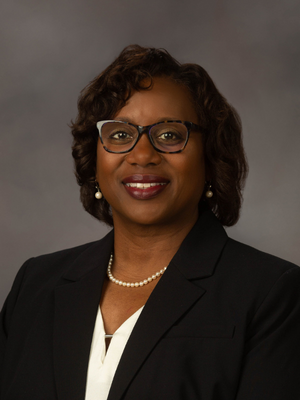The Something New for the Preclinical Curriculum

Generally, electives for an undergraduate medical education program are clinical and focused on broadening students’ career options. During the 2023-24 academic year, students in the redesigned first-year curriculum for the School of Medicine educational program, were given the opportunity to select an elective for the second semester. These electives were designed to provide students with a choice to personalize their preclinical curriculum with something that was self-motivating and of personal or professional interest.
The inclusion of electives in the educational program is supported by the Liaison Committee on Medical Education (LCME). Standard 6 which is focused on ‘Competencies, Curriculum Objectives, and Curricular Design’ has an element on Elective Opportunities (6.5). The element states that ‘the faculty of a medical school ensure that the medical curriculum includes elective opportunities that supplement required learning experiences and that permit medical students to gain exposure to and expand their understanding of medical specialties, and to pursue their individual academic interests.’ Additionally, the school has an interest in ensuring that electives are available to address emerging scientific areas and the importance of other areas of study such as information technology, biomedical research, as well as statistical, social, and epidemiologic sciences.
During the past academic year, the electives available to the first-year students were: Behavior Change; End-of-Life Care; Healthcare Leadership; Improvisation for Communication; The US Health System: An Introduction to Providers, Regulators, and Policy; Race and Medicine; Service Learning; Medical Spanish; Computers in Medicine; Toxicology; Tropical Medicine; and Women’s Health. Many thanks to the faculty who developed and taught these educational sessions. All participants were required to complete a capstone project or produce a reflective product. Grading was pass/fail for all electives.
Feedback by the students from these newly developed electives was overwhelmingly positive. The topics were wide-ranging and varied, allowing all students to choose something of interest. Most of the constructive critiques focused on effective use of class time and the need for organizational improvement. The course directors received student feedback for their course. It is important that all electives have a clearly articulated purpose and course objectives that help to achieve the educational program objective as outlined in the bulletin for the School of Medicine.
We encourage faculty with an interest in helping shape the physicians of tomorrow to consider ways to actively engage in the undergraduate educational program. Dr. David Norris is the current chair of the SOM Curriculum Committee and leads the efforts related to the curriculum. Let him know if you have a timely topic for an elective and an interest in being a course director. Electives for the second-year curriculum will be offered this fall; however, it is not too early to plan for academic year 2025-26.


